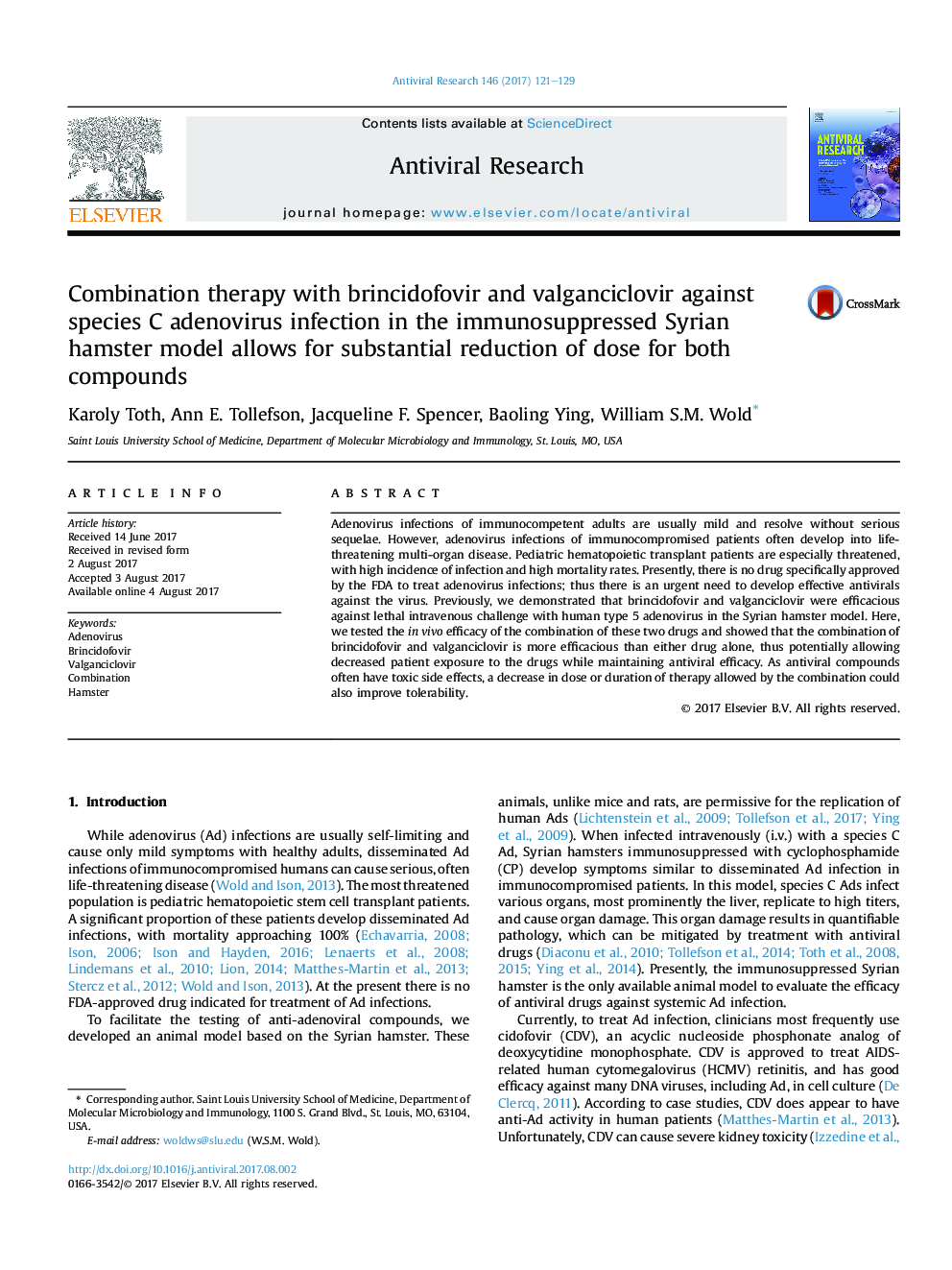| Article ID | Journal | Published Year | Pages | File Type |
|---|---|---|---|---|
| 5551680 | Antiviral Research | 2017 | 9 Pages |
â¢Adenovirus infections of immunocompromised patients can cause serious multi-organ disease.â¢The immunosuppressed Syrian hamster is an adequate animal model to test the efficacy of anti-adenoviral drugs in vivo.â¢The combination of BCV and VGCV is more efficacious in suppressing HAdV replication in hamsters than either drug alone.
Adenovirus infections of immunocompetent adults are usually mild and resolve without serious sequelae. However, adenovirus infections of immunocompromised patients often develop into life-threatening multi-organ disease. Pediatric hematopoietic transplant patients are especially threatened, with high incidence of infection and high mortality rates. Presently, there is no drug specifically approved by the FDA to treat adenovirus infections; thus there is an urgent need to develop effective antivirals against the virus. Previously, we demonstrated that brincidofovir and valganciclovir were efficacious against lethal intravenous challenge with human type 5 adenovirus in the Syrian hamster model. Here, we tested the in vivo efficacy of the combination of these two drugs and showed that the combination of brincidofovir and valganciclovir is more efficacious than either drug alone, thus potentially allowing decreased patient exposure to the drugs while maintaining antiviral efficacy. As antiviral compounds often have toxic side effects, a decrease in dose or duration of therapy allowed by the combination could also improve tolerability.
